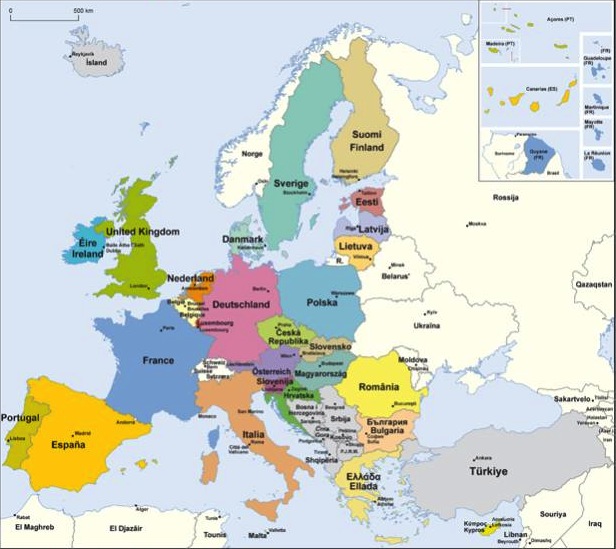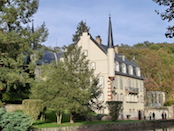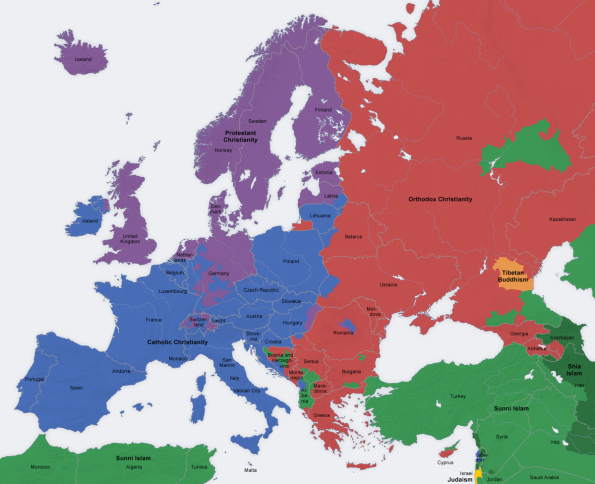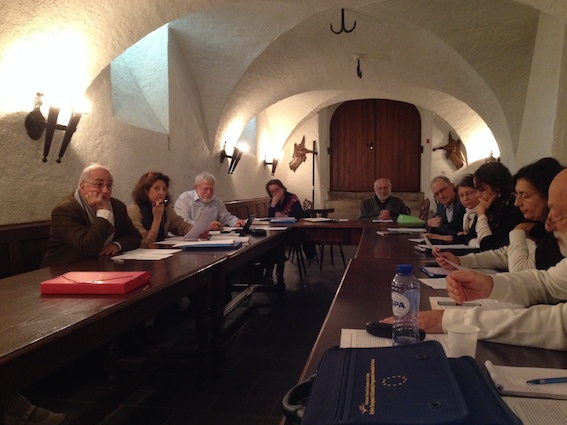Colloquy at the Château de Klingenthal, Alsace
(25-27 October 2013)
"Citizens with different convicitons and cultures, sharing their resonsibility for the construction of a democratic and pluri- convictional Europe."


International, Intercultural, Interconvictional Group



00
The G3i has comeinto being as a "think tank" with en eye to action. It members and guest speakers are well aware of European plurality, of its implications and of diversity of conviction that includes religions and non religious conviction. The map on this apge includes the chief historical traditions of religious diversity in Europe. This diversity continues to influence the culture of a secularised society.
In the United Kingdom Scotland is Presbyterian. England and Wales are Anglican. Anglicans are not exactly Protestant.
There is a significant Catholic minority and a plethora of Christian denominations.
In Scandinavia there is a Lutheran majority. In each country they are independent. In Finland thre is also an Orthodox minority...
In Germany there are Protestant and Catholic Länder (states). The Luth- eran tradition is different from that in Scandinavia. The Protestant and Catho- iic länder are a con- sequence of European history.
In France there are Protestant minorities. They have not forgotten the Wars of Religion.
The Orthodox are not just one church. The Greek and Russian churches are different, the Church of Crete exists in its own right
Turkey (which is a Muslim country) and France (Cath lic) are "laïque") with the semparation of religion and state. There are controls on the wearing of religious symbols
One should be aware of delicate situations on the "frontier" of the former Ottoman and Habsburg Empires...
L
Non religious convictions are to be found in all parts of Europe.The European Humanist Federation is present at the Council of Europe as well as in the countries of Europe.The European Buddhists are also present at the Council of Europe with widespread presence elsewhere. Their community is "recognised" in France with a number of centres. There are also significant Jewish and Muslim populations in Europe. .
There are Waldensian churches in italy and Switzerland ... They are often perceived as being Protestant but they antedate the Refomration






